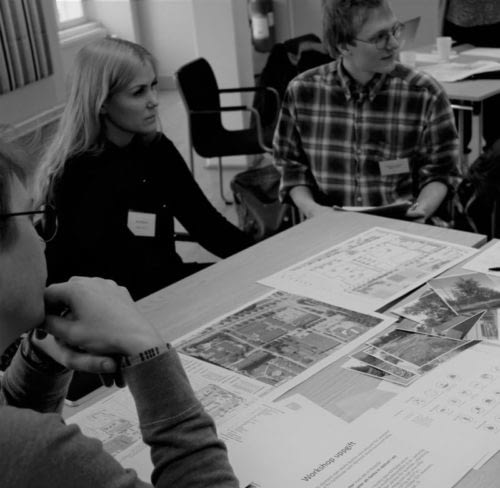Authors: Barry Ness and Kerstin Hemström
(3 min read)
In 2010, an independent commission was created in Malmö, Sweden, to address increasing health inequalities and long-term social sustainability in the city. The work of the commission was presented 3 years later and is generally known as a good example of a cross-cutting approach to knowledge co-generation, involving citizens, public officials, civil society organizations, industry and researchers. The three transdisciplinary panels organised by the Skåne platform were an indirect outcome of the commission. Three broad locally relevant urban themes were identified by the platform leadership: urban ecosystem services, migration and urban development, and sustainable neighbourhood development. They combined researcher and practitioner perspectives, mainly involving experts from the three regional universities and municipalities. The work was widened with members from regional authorities and/or the private sector, broadening the diversity of insights and promoting increased understanding of the particular urban challenge in question. Each panel consisted of approximately 8–10 members and the platform leadership selected a panel leader for each theme based on their knowledge of key individuals. The remaining panel members were then chosen by panel leaders based on their experience of working on the theme and through consultation with others. The aims of the panels were to gather and synthesize the disparate knowledge and experiences that existed on each of the targeted sustainable urban development themes, to disseminate this knowledge to actors both in and beyond the region and to promote more informed and integrated sustainable urban development processes. The structure of the panels varied with each constellation working as a knowledge cluster for its theme, organising the work and activities in different ways and through collaborative processes. The process of co-defining the knowledge needs in conjunction with participating in the different common panel activities fostered a community of trust and understanding among panel participants. In each panel, members were jointly responsible for collecting, analysing, and synthesising knowledge and experiences relevant to the theme. The work involved mapping knowledge gaps and demands in both research and city practice as well as making critical insights accessible through summaries and communication. This also meant linking activities into ongoing policy and urban development processes, in Malmö and throughout the broader region. Social media, reports and peer-reviewed publications were used to promote the findings. Specific activities included, for example, co-writing of knowledge syntheses, common retreats and workshops with regional city planners, conference presentations, study visits, and public presentations. As another tangible example, one panel took the additional step of funding even smaller transdisciplinary projects, to stimulate development of ecosystems-based initiatives within the region. Most participants found panel collaboration rewarding. In addition to advancing the understanding of issues on the panel’s specific urban sustainability theme and sub-themes, individual panel members benefited from the increased knowledge from the broader collaboration process and team of experts. The insights they gained enabled them to reflect upon and sharpen research questions and decisions in parallel research and practice activities.
Lessons learned
The structure, activities, and methods of each of the panels varied. All panels had a number of start-up planning meetings aimed for members to develop the broader project and the sub-themes within it and as the panel work progressed, the individual working styles evolved. The different panel activities served to facilitate knowledge co-production processes that probably would not have been possible otherwise. However, there is room for improving the process. First, our experiences demonstrated that co-production processes must be prioritized by participants. In addition, the process of setting up the panels took significantly longer than expected, which had implications on the level of knowledge co-production that was ultimately achieved within the time frame. Ample time must be allotted for experts to form relationships and build communities of trust between themselves and the different organizations they represent. Finally, good panel leadership is essential. Leadership styles varied among the panels, which had strong implications for the level of success of the panels. Conventional academic project management is difficult; managing individuals from both academia and practice with their different priorities, outlooks, and work cultures requires leaders with understanding, patience, and skills to guide the process down pathways that work for all participants. The panels were funded by internal Skåne platform funding with matching funding from the Mistra Urban Futures project.

 Sweden
Sweden